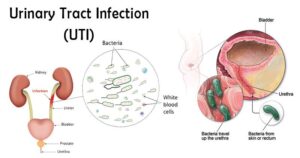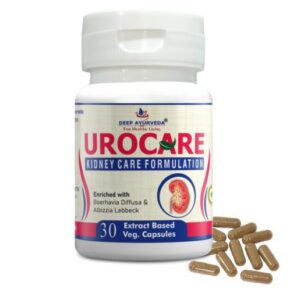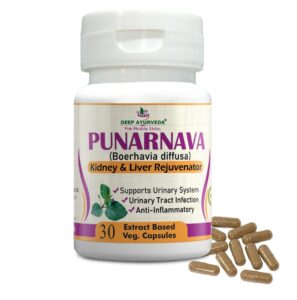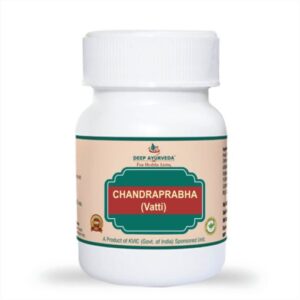Ayurvedic
Ayurvedic treatment of UTI | Beneficial in Urinary retention, Pain and Burning sensation while Urinating
Table of Contents
Ayurvedic Treatment of UTI
Introduction:
Urinary tract infections (UTIs) are the most common health problem nowadays in which bacteria invade and grow in the urinary tract affecting millions of people each year and the infection can affect any part of the urinary tract. The infection can involve the urethra (a called known as urethritis), kidneys (called pyelonephritis), or bladder (called cystitis). The bacteria can get into the urinary system from outside of the body and lead to inflammation, and infection, this condition is known as Urinary tract infection (UTI).

Causes of UTI:
Escherichia coli are the most common causative organism for the occurrence of UTIs that cause approximately 80% of acute infections. The infection most commonly develops in the bladder, and in rare cases can spread to the kidneys. Women tend to get infections more often because the urethra is shorter and closer to the anus than in men.
Risk Factors of UTI:
- Having a kidney stones
- Pregnancy
- Bowel incontinence
- Enlarged prostate
- Having a urinary catheter
- Having Diabetes
Symptoms of UTI :
- Passing fewer amounts of urine
- Burning sensation while urinating
- Urinary retention
- Foul-smell and cloudy urine
- Severe pain in the abdomen and pelvic area
- In chronic conditions, hematuria
- A high temperature, or feeling of shivery or hot
- Tiredness, Nausea, Vomiting
- Pain in the back region
- Despite the strong urge to urinate, only a small amount of urine is passed
Ayurvedic view of UTI:
In Ayurveda, UTI is correlated with Mutrakricha, which indicates painful voiding of urine. Mutra vaha srots are the channel carrying urine that begins from the kidneys, bladder, and ureter, and the end or opening is the urethra. According to Ayurveda, UTI occurs due to an imbalance of pitta dosha, which mainly includes drinking excess alcohol, suppressing the natural urge to urinate, habitually retaining urine in the bladder for a long time, exposure to extreme sunlight or heat, etc. It is better to take Ayurvedic Treatment of UTI, as in Ayurveda, various herbs are available that help in the proper management.
According to Acharya Charaka, eight different types of UTIs are caused by the imbalance or vitiation of doshas and dhatus. Types of UTIs are:
- Vataja (caused by vitiation of Vata dosha)
- Pittaja (caused by vitiation of Pitta dosh)
- Kaphaja (caused by vitiation of Kapha dosha)
- Sannipataja (caused by vitiation of all the three doshas)
- Raktaja (caused by the vitiation of rakta dhatu)
- Shukraja (caused by the vitiation of Shukra dhatu)
- Ashmari (caused by urinary stone)
- Sharkaraja (caused by an increased level of sugar)
Causes of UTI as per Ayurveda:
As per Ayurveda, intake of excess ruksha Madhya (dry alcoholic beverages), anupa mamsa (animal meat in marshy places), excess spicy, sour, salty foods, ajeerna bhojana (eating food before the previous food is digested), matsya (fish)and indulging in food, drinking water while suppressing the urge to urinate are the main causative factors of UTI’s.
Symptoms of UTI as per Ayurveda:
The imbalance or vitiation of tridoshas and agnimandhya (disturbed digestive fire) result in producing ama (toxins). The ama combines with imbalanced or vitiated doshas and produces symptoms like snigdha, shweta, and picchila mutra (turbid urine), mutrendriya, and basti gurutwa (heaviness of the urinary system), peetamutrata (yellow-colored urine), pain (shoola) and burning sensation (daha) while urination.
Panchakarma Therapies for UTI:
- Basti Chikitsa (Enema therapy): Basti therapy refers to Ayurvedic enemas prepared from herbal oils and decoctions and is one of the best therapy for cleansing the large intestine and rectum and is recommended in the Ayurvedic Treatment of UTI. The formulation of an enema depends on the therapeutic action and is one of the best therapies for the elimination of toxins from the body. These therapies provide relief from obstruction and dysuria.
- Swedana: Sudation or swedana therapy involves the induction of sweating and it promotes liquefaction of toxins that are spread in different parts of the body. In Ayurvedic texts, avagaha sweda (sitz bath) and tapa sweda (fomentation) are recommended for the Ayurvedic treatment of UTIs. Also, snehapana of ghrita and snehana (oleation) using medicated oils on the kati (waist), parshava (flanks) areas improves vatanulomana (proper regulation of vata) in the patients with UTIs.
- Lepam: Lepas is a semisolid form of different medicinal herbs that are applied to a specific body part or entire body to reduce inflammation, tenderness, or stiffness. In the Ayurvedic texts, Yavakshar or Suryakshara is mentioned as the Ayurvedic treatment of UTI.
Ayurvedic Treatment of UTI from Deep Ayurveda:
In Ayurveda, various herbs are available like Gokshura, Punarnava, Kantakari, Amalaki, etc., that work wonders in managing the symptoms of UTI, balance aggravated doshas, act as deepana, pachana, shoth hara, treat urogenital problems including dysuria, urinary infection, haematuria, and urine incontinence. The Ayurvedic herbs provide natural ways to restore the body’s bacterial balance and help in promoting healthy bacteria and fighting the harmful ones.
Deep Ayurveda provides 100% extract-based Ayurvedic products formulated after various clinical trials. The products are safe, easy to use, and free from animal cruelty. The TheAyurvedic Treatment of UTI helps in the detoxification of the body and provide relief from associated symptoms of UTIs. The product description is mentioned below:
Urocare Capsule : Urocare capsule is a composition of six to seven Ayurvedic herbs that amazingly works in flushing out the accumulated toxins from the body and works as the best choice for the Ayurvedic Treatment of UTI. The key ingredients like palash, shigru, neem, varun are rich in anti-inflammatory, antifungal, and antimicrobial properties that increase the urine flow and subside the symptoms of UTIs like burning sensation during urination. The herbs are rich in mutral and sheeta properties that help in managing the symptoms and prevent a person from various upcoming complications.
: Urocare capsule is a composition of six to seven Ayurvedic herbs that amazingly works in flushing out the accumulated toxins from the body and works as the best choice for the Ayurvedic Treatment of UTI. The key ingredients like palash, shigru, neem, varun are rich in anti-inflammatory, antifungal, and antimicrobial properties that increase the urine flow and subside the symptoms of UTIs like burning sensation during urination. The herbs are rich in mutral and sheeta properties that help in managing the symptoms and prevent a person from various upcoming complications.
Livclear Capsule : It is the composition of herbs that helps in improving the functioning of the liver organ and helps in the detoxification of toxins from the body. The ingredients like bhumi amla, katuki, kalmegh, makoy, punarnava have kapha and pitta balancing properties and help in improving the digestive system, improve blood circulation, help in boosting the immunity, help in the rejuvenation of the cells, and provide multiple health benefits to an individual.
: It is the composition of herbs that helps in improving the functioning of the liver organ and helps in the detoxification of toxins from the body. The ingredients like bhumi amla, katuki, kalmegh, makoy, punarnava have kapha and pitta balancing properties and help in improving the digestive system, improve blood circulation, help in boosting the immunity, help in the rejuvenation of the cells, and provide multiple health benefits to an individual.
Punarnava Capsule : Punarnava herb is rich in anti-microbial, anti-spasmodic, and anti-inflammatory properties and is one of the best choices for Ayurvedic Treatment of UTI which help to prevent bacterial infections in the urinary tract and thereby reduce pain and burning sensation while urinating. The herb is rich in Vata balancing and a mutral property that increases the flow of urine provides relief from bladder ailments and has a cleansing effect on the urinary bladder.
: Punarnava herb is rich in anti-microbial, anti-spasmodic, and anti-inflammatory properties and is one of the best choices for Ayurvedic Treatment of UTI which help to prevent bacterial infections in the urinary tract and thereby reduce pain and burning sensation while urinating. The herb is rich in Vata balancing and a mutral property that increases the flow of urine provides relief from bladder ailments and has a cleansing effect on the urinary bladder.
Curcumin Capsule : Curcumin capsules significantly improve the chronic symptoms of urinary tract infections, decline inflammatory responses, rich in anti-inflammatory, antispasmodic, antimicrobial, and antioxidant properties. Studies show that turmeric may help fight infections and helps in reducing the associated symptoms of UTIs.
: Curcumin capsules significantly improve the chronic symptoms of urinary tract infections, decline inflammatory responses, rich in anti-inflammatory, antispasmodic, antimicrobial, and antioxidant properties. Studies show that turmeric may help fight infections and helps in reducing the associated symptoms of UTIs.
Chandraprabha Vati : The classical Ayurvedic product Chandraprabha vati is also known to have mild anti-infective properties and has a pitta balancing effect, helps to control burning sensation, increases the urine flow, and maintains the uric acid level in the kidneys. It is a wonderful formulation used in urinary tract infections and painful urination.
: The classical Ayurvedic product Chandraprabha vati is also known to have mild anti-infective properties and has a pitta balancing effect, helps to control burning sensation, increases the urine flow, and maintains the uric acid level in the kidneys. It is a wonderful formulation used in urinary tract infections and painful urination.
Naribalaya Syrup : It is a composition of such key ingredients that help in managing urinary tract infections and renal diseases and is used since ancient times as the Ayurvedic Treatment of UTI. Moreover, it improves general health and effectively works in weakness, tiredness, fatigue, etc. The herbs like ginseng can be a bladder stimulant and may increase frequency and urgency. The anti-bacterial properties stave off infection and soothe burning sensation and irritation.
: It is a composition of such key ingredients that help in managing urinary tract infections and renal diseases and is used since ancient times as the Ayurvedic Treatment of UTI. Moreover, it improves general health and effectively works in weakness, tiredness, fatigue, etc. The herbs like ginseng can be a bladder stimulant and may increase frequency and urgency. The anti-bacterial properties stave off infection and soothe burning sensation and irritation.
Diet and Lifestyle modifications for UTI Patients:
Along with the Ayurvedic Treatment of UTI, a person needs to take care of healthy diet and lifestyle activities.
- Increase the intake of water, it may be in the form of fresh lemon juice, fresh coconut water, orange juice, pineapple juice, or sugarcane juice.
- Consume seasonal fruits such as grapes, apples, peaches, pomegranates, and plums.
- In Curd, Lactobacilli bacteria are present that can provide probiotics to the body and help correct any imbalance caused by bacterial infections.
- Consuming herbal tea with cinnamon is also very beneficial as it is rich in anti-bacterial properties.
- Cardamom spice is an excellent diuretic, chew cardamom pods every day to help in cleansing the urinary tract, bladder, and kidneys helps removes waste material, impurities, and combat infections.
- A soothing coriander drink helps to flush out the toxins and provide nourishment to the urinary tract.
- Include fiber in your diet (such as horse gram, and kidney beans)
- Don’t hold the urge to urinate.
- Avoid dampness and moisture that cause infection in the urinary system.
- Limit exposure to excess heat and sun.
- With the Ayurvedic Treatment of UTI, Yoga asana like gomukhasana (cow’s face pose), ardha matsendrasana (half spinal twist pose), uttanpadasana (raised leg pose), pawanmuktasana (wind-relieving pose), mula bandha (root lock), viparita karani (legs up the wall pose) can help in strengthening the pelvic floor and urinary system.
Ayurveda offers a holistic approach and helps an individual in multiple ways. At Deep Ayurveda, we provided the best Ayurvedic Treatment of UTI with a full assessment by our Experienced and Qualified Ayurvedic Doctors.
For more detail on ‘Ayurvedic Treatment of UTI’, please visit our nearest clinic, or if you want to consult with our Chief Ayurveda Consultant & Founder – Dr. Baldeep Kour then write with detailed history at info@deepayurveda.com
For regular health updates, please follow our Social Pages


